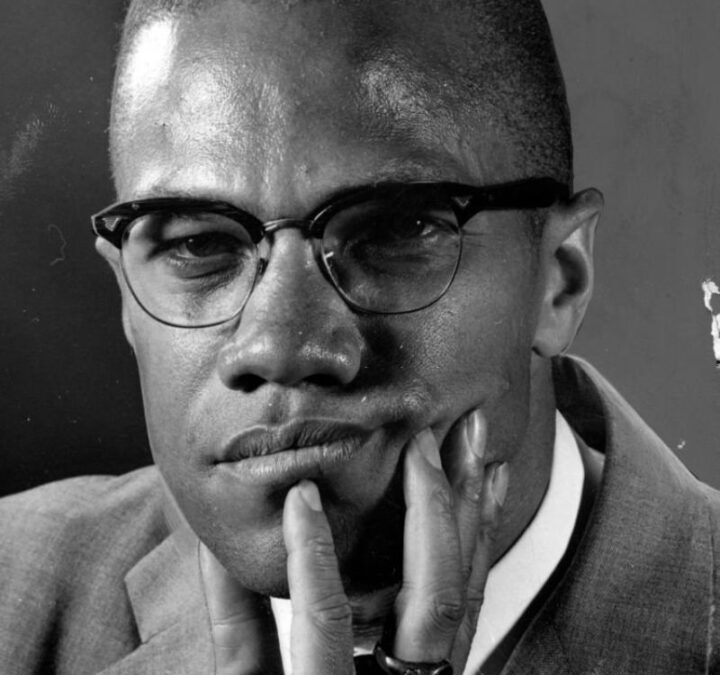Malcolm X is an emblematic figure of the American civil rights movement. Born in 1925, he became one of the greatest campaigners for the rights of African-Americans, advocating equality, freedom and independence. The aim of this article is to retrace his career and legacy, highlighting his contributions and achievements.
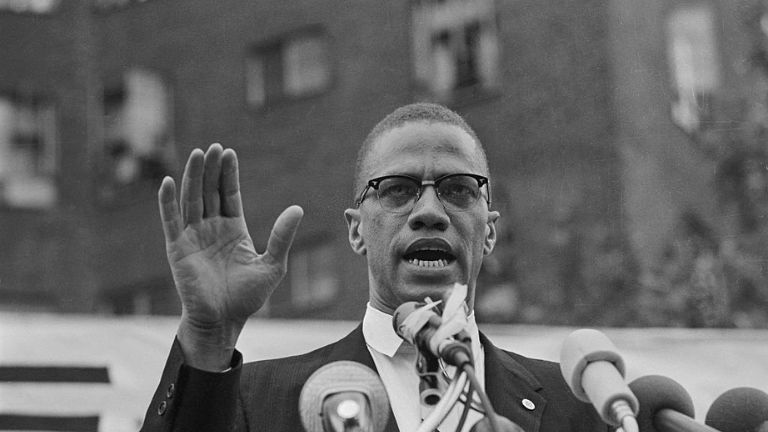
I. Who was Malcolm X?
Malcolm X was born on May 19, 1925 in Omaha, Nebraska. He was the fourth of eight children born to Louise Little and Earl Little, both staunch defenders of civil rights for African-Americans.
However, Malcolm X’s family faced many obstacles due to the rampant racial discrimination in the country at the time. Shortly after Malcolm’s birth, the family moved to Milwaukee, Wisconsin, where Earl Little was subjected to numerous racist attacks by the local white population.
In 1929, the family moved to Lansing, Michigan, where Malcolm X spent much of his childhood. However, even in this more welcoming city for African-Americans, Malcolm X’s family continued to experience acts of racism, including the constant threat of the Ku Klux Klan.
In 1931, Malcolm X’s father was found dead on a railroad track in Lansing, in circumstances still unknown to this day. His mother suffered from depression after her husband’s death and was placed in a psychiatric hospital. The children were scattered among various foster families and orphanages.
Malcolm X spent much of his childhood in foster homes, where he encountered racism and discrimination. He also experienced problems at school, often being regarded as a disruptive student. However, despite these difficulties, Malcolm X developed a passion for reading and learning, which played a crucial role in his later life.
Encounter with the Nation of Islam
Malcolm X was incarcerated for theft at the age of 20 and sentenced to 10 years in prison. While incarcerated, he began to educate himself by reading numerous books, including works on history, politics and religion.
It was in Norfolk that he met John Elton Bembry, a member of the Nation of Islam, who introduced him to the organization’s teachings. The Nation of Islam is an African-American religious organization that advocates the separation of blacks and whites and the creation of an independent black state.
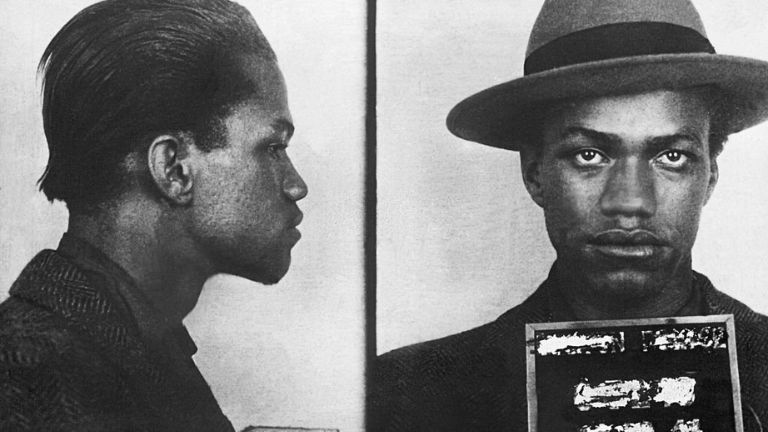
After reading the book« Message to the Blackman » byElijah Muhammad, Malcolm X was convinced that the Nation of Islam had the answer to the problems of the black community. He began to study the religion more closely and was introduced to the Nation of Islam’s doctrine, which teaches that blacks are the true Israelites and whites are devils created by an evil black scientist.
Malcolm X was attracted to the radical ideology of the Nation of Islam, which advocated black pride, the rejection of white supremacy and black economic emancipation. He was also seduced by the NOI‘s message of discipline and self-respect.

II. His role in the Nation of Islam
Malcolm X played a key role in the Nation of Islam, an African-American religious organization founded in 1930. He joined the Nation of Islam in prison, where he discovered Islam and began studying the teachings of the organization’s leader, Elijah Muhammad.
After his release from prison in 1952, Malcolm X became one of the Nation of Islam’s most influential spokesmen. His outspoken, provocative speaking style quickly caught the attention of the media and the masses, making him a key figure in the civil rights movement.
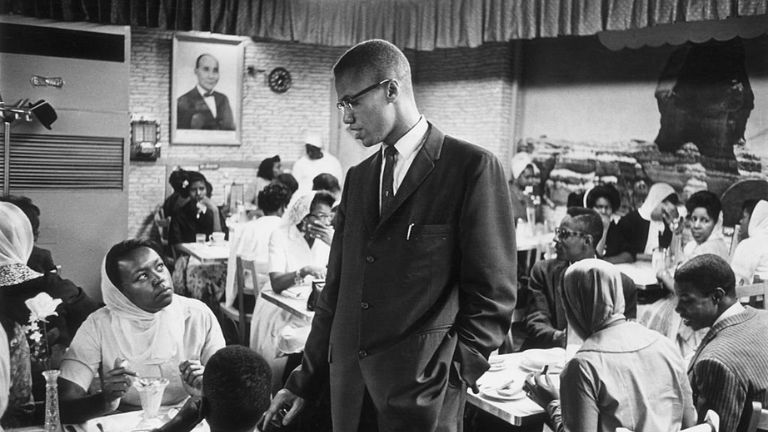
Malcolm X advocated the economic, political and social emancipation of African-Americans, but he also defended a separatist ideology, calling for the creation of an independent black state in America. This approach contradicted the ideas ofMartin Luther King Jr. who advocated non-violence and integration.
Malcolm X was also an ardent defender of black education and culture, encouraging African-Americans to take ownership of their own history and reject racist stereotypes.
Over time, Malcolm X rose through the ranks of the Nation of Islam to become one of its most prominent and influential members, using his voice to encourage blacks to reject white supremacy and unite to build their own community.
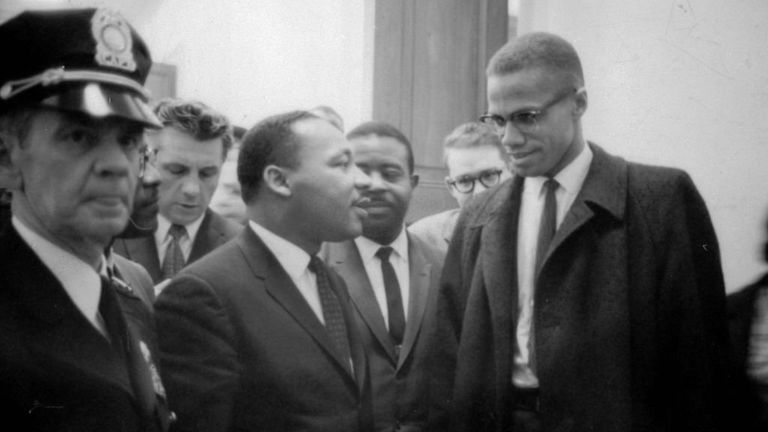
Malcolm X’s name change
The X in Malcolm X’s name represents the unknown, the indefinite, the infinite. Malcolm X explained in his speeches that the name he was given at birth, Malcolm Little, was a slave name that had been imposed on his family by their white owners. For him, the name was a symbol of the oppression suffered by black Americans.
By joining the Nation of Islam, Malcolm X embraced the idea that the surnames that had been given to black Americans by slave owners were slave names, and that it was therefore important to get rid of them in order to regain a clean identity free from oppression.
Malcolm X’s name change in 1964 was therefore an affirmation of his new identity as an orthodox Sunni Muslim, as well as an acknowledgement of his African heritage. The X stood for the fact that he was freeing himself from his past and discovering a new identity.
By choosing to no longer use his surname, Malcolm X symbolically rejected the identity imposed by whites and asserted himself as a distinct, autonomous individual. The X thus had profound significance for Malcolm X and for those who adhered to the Nation of Islam at the time.

However, in 1964, after a visit to Saudi Arabia, Malcolm X broke with the Nation of Islam, denouncing their racist and separatist ideology. This decision provoked an uproar within the organization and led to death threats against Malcolm X.
Despite this rupture, Malcolm X’s role in the Nation of Islam was crucial to the development of the civil rights movement in the United States. His outspoken and provocative rhetoric highlighted the injustices suffered by African-Americans and mobilized the masses, contributing to the struggle for equality and justice.
III. The evolution of his ideas
Malcolm X, whose real name was Malcolm Little, changed his name to Malcolm X after joining the Nation of Islam (NOI). After leaving the NOI in 1964, he converted to Sunni Islam and adopted the name El-Hajj Malik El-Shabazz.

The name Shabazz is an African name that Malcolm X adopted to symbolize his return to his family’s African identity, which had been largely erased by the transatlantic slave trade and slavery in the United States. The prefix « El-Hajj Malik » referred to his pilgrimage to Mecca, where he was touched by the diversity and unity of the Muslim community.
Malcolm X adopted this new name as a sign of his commitment to the struggle for black emancipation and his quest for his identity as an African-American. The name Shabazz was also a way of reconnecting with his African cultural heritage and rejecting the family name that had been imposed on him by white slave owners.
By adopting the name Shabazz, Malcolm X highlighted the need for Black Americans to reclaim their cultural identity and reject racial stereotypes and discrimination. The name has become a symbol of pride and resistance for the black community, as well as a tribute to Malcolm X and his commitment to justice and equality.
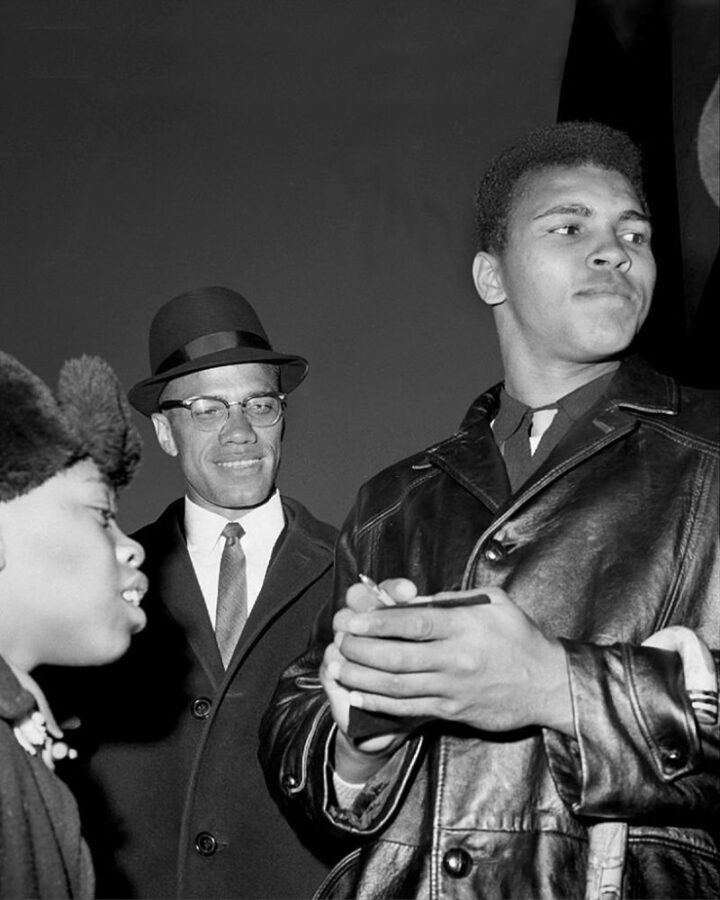
IV. His impact on the civil rights struggle
Malcolm X had a significant impact on the struggle for civil rights in the United States. His outspoken, provocative rhetoric and radical convictions highlighted the injustices suffered by African-Americans and helped mobilize the masses in the fight for equality and justice.
Malcolm X was one of the greatest campaigners for African-American rights, advocating equality, freedom and independence. He championed the economic, political and social emancipation of African-Americans, but also advocated a separatist ideology, calling for the creation of an independent black state in America. This approach contradicted the ideas of Martin Luther King Jr. who advocated non-violence and integration.

Malcolm X was known for his outspoken, provocative style of speech, which quickly caught the attention of the media and the masses. His speeches were calls to action, encouraging African-Americans to reject racist stereotypes and take ownership of their own history.
Malcolm X was also an ardent defender of black education and culture. He encouraged African-Americans to educate and cultivate themselves in order to better understand their history and reject racist stereotypes.
In addition to his influence on African-Americans, Malcolm X also had an impact on the movement for the rights of minorities and the oppressed around the world. His message of freedom, equality and independence inspired liberation movements around the world.
V. His legacy
Malcolm X’s legacy can be seen in the organizations he founded and the ideologies he advocated. His vision of freedom, equality and independence for African-Americans has inspired generations of civil rights activists and continues to serve as a model for those fighting oppression and discrimination.
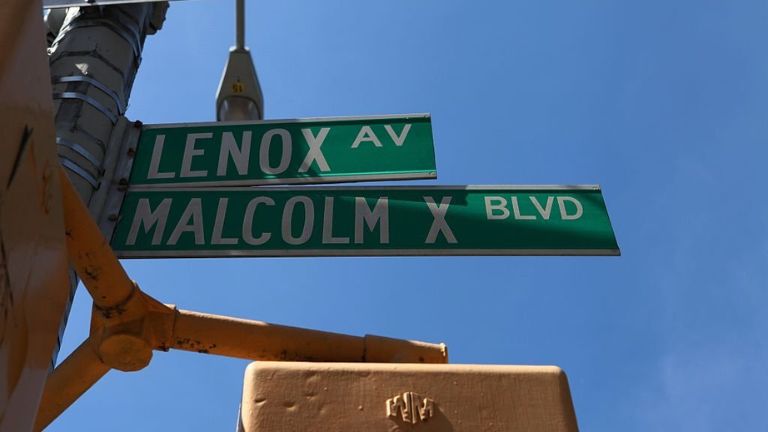
The best-known organization Malcolm X founded is the Nation of Islam. He joined this organization in the 1950s and became one of its most influential leaders. The Nation of Islam advocates the separation of the races and the creation of an independent black state in America. Malcolm X helped broaden the organization’s scope and visibility with his outspoken and provocative speeches.
After leaving the Nation of Islam in 1964, Malcolm X founded the Organization of Afro-American Unity (OAAU). The purpose of this organization was to bring together African-Americans from all walks of life and to promote the economic, political and social emancipation of the black community. The OUAA also worked to create links with other liberation movements around the world.
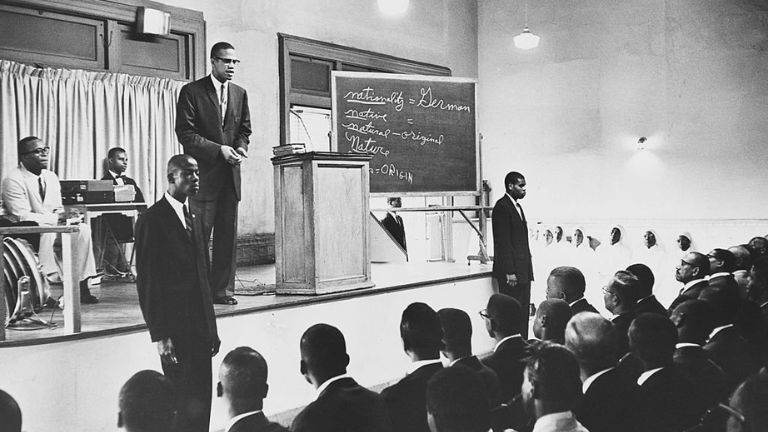
Malcolm X’s legacy can also be seen in the ideologies he championed. He advocated the economic, political and social emancipation of African-Americans, but he also encouraged African-Americans to educate and cultivate themselves. His message of pride and self-confidence encouraged African-Americans to take ownership of their own history and reject racist stereotypes.
Finally, Malcolm X’s legacy can be seen in the way he inspired generations of civil rights and equality activists. His outspoken and provocative speeches inspired many to reject racist stereotypes and fight against oppression and discrimination. His vision of freedom, equality and independence continues to be a model for those fighting for justice and equality around the world.

Malcolm X died tragically in 1965, assassinated. However, his legacy lives on through his writings, speeches and philosophy. His vision of the civil rights struggle as a struggle for equality, freedom and independence continues to inspire civil rights activists the world over.
See also our article: Martin Luther King

